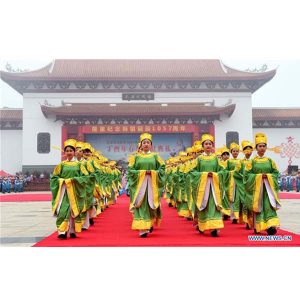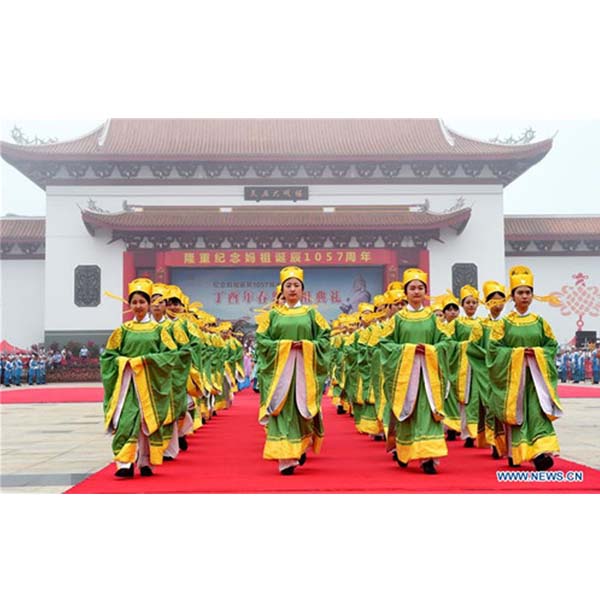
The 23rd day of the third month of the lunar calendar is the birthday of Maza (媽祖), prompting festivals in her honor around the world.
In Singapore, her birthday is observed in a four-day festival in her honor.
Mazu is probably one of the most-worshipped Chinese goddesses. Yet, she began life like anyone: a baby born to a human couple.
Her real name as Lin Moniang (林默娘), so named because, according to legend, she did not cry when she was born. Her father was Lin Yuan, Fujian’s superintendent during the early Northern Song Dynasty (960-1127).
As she grew up, Moniang was said to be able to forecast the weather at sea and was later deified as a goddess of the sea, Mazu.
In Minnan dialect, “Mazu” is an expression of ultimate respect for an ancestress.
Mazu is the most worshipped sea goddess in China’s coastal areas, especially in the southeast and Taiwan islands, where people made their living by fishing.
They pray to Mazu for blessings and protection while on the seas. Known as Heavenly Queen, she is portrayed as a benevolent woman wearing a crown and dragon robe.
In later dynasties, as China’s maritime trade grew, people in northern provinces also began to worship Mazu for safe sailing.
Maritime contact led to Mazu worship in other Southeast Asian nations. Mazu thus became the protection goddess of Chinese people everywhere.
Today, she is worshiped not just in Fujian and Taiwan, but also in overseas Chinese communities.
There are an estimated 1,500 Mazu temples in 26 countries around the world, of which almost 1,000 are in Taiwan, nearly 200 in Fujian, and more than 90 in Hong Kong.
